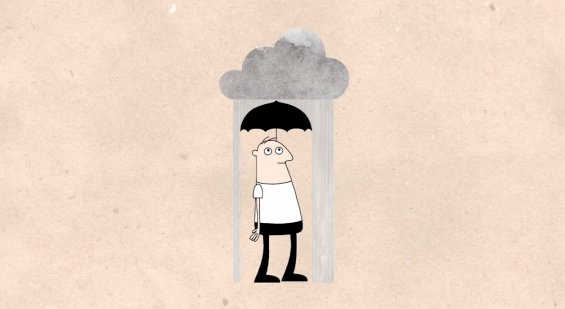
TED-Ed’s super summer reading list: 40+ books recommended by our educators
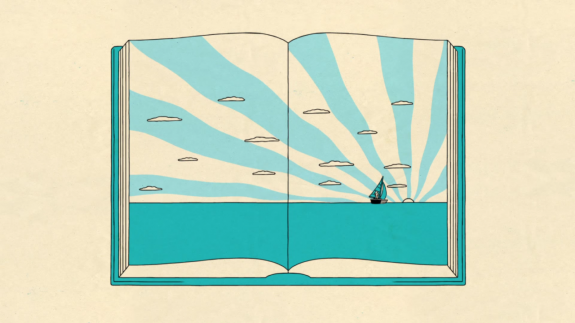
Summer: it’s the season of rest, rejuvenation … and reading lists. TED-Ed asked some of our favorite educators and staff to weigh in on the best books for students, teachers and all other summertime scholars to crack into during the break. Whether you’re swinging in a hammock, laying out on a beach or still working 40-hour weeks, these titles (which run the gamut from art history to health to the classics and beyond) are sure to keep your brain stimulated during the warm weather months.

The Art Spirit by Robert Henri – “Not just for artists. A book of musings, writings, notes and lectures collected posthumously by a former student. Not so much about making art as it is about creating the conditions in which art happens, conditions in which we are able to engage at our highest functional capacity for taking in the world around us and putting it back out there.”
*Recommended by TED-Ed Animation Producer Jeremiah Dickey
Ways of Seeing by John Berger – “This is a classic art text first published in 1972 to accompany a BBC series by the same name. If you are a student, teacher, or fan of the visual arts, and you haven’t read this book yet, be sure to put it at the top of your reading list. Today more than ever before, it is critical that we teach students how to decipher and interpret visual media. Ways of Seeing, even though published long before the internet, will shift the way you think about how to process visual information.”
*Recommended by TED-Ed Educator Laura Morelli

The Last Lecture by Randy Pausch – “This book, like all good books, asks you to think about the important things in your life. It makes you consider what it is you value and requires you to consider whether or not your life mirrors those values. Finally, it is short. It could easily be read in one sitting, but you’ll think about it for weeks. ”
*Recommended by TED-Ed Educator Zack Patterson
A Hope in the Unseen by Ron Suskind – “This book is an awesome biography of a student who overcomes a lot of what’s wrong with our education system. He comes from a lower socioeconomic background and a really poor neighborhood and school. He has some great teachers who help him live up to the potential that they see in him and ultimately help him get to college. The book goes on to chronicle his first year of college at Brown University and the unseen challenges that he experienced there as a black student at an Ivy League school. Good read.”
*Recommended by TED-Ed Programs Coordinator Caroline Cristal

The Gadfly by Voynich – “I’m sure my description won’t do this book justice, but here’s why I think everyone should read it: First, it’s a classic, and while it isn’t as philosophically multilayered and complicated as Dostoyevsky, it’s very much within the realm of The Brothers Karamazov. It defines true love in all of its aspects. It’s an amazing debate of what is moral. It’s one of my favorite books I have EVER read, and it forces you to question your reality or, for many, a reality that isn’t really theirs. I think everyone needs to read this book — it’s an amazing gateway to other, similar, and far more complicated literature. I cried so much all three times I read it.”
*Recommended by TED-Ed Producer Gerta Xhelo
The Old Man and the Sea by Ernest Hemingway – “I love this book because it is a literal tour de force, written in simple and powerful language. Set primarily at sea, it follows the struggle of an aging fisherman and his quest for success. It’s a story of the human spirit in the face of adversity, which is something everyone can relate to, even at different ages. It’s a short novel, purposefully written, and perfect for summer reading. Even if you don’t make it to the beach, this book transports you to the wilderness of the sea and the adventure that awaits.”
*Recommended by TED-Ed Educator Claudia Aguirre
Dubliners by James Joyce – “In honor of the 100th anniversary of its publication in 1914, read James Joyce’s short story collection, The Dubliners — an accessible, fascinating introduction to one of the greatest writers of the 20th century and good preparation for reading his A Portrait of the Artist as a Young Man (and eventually Ulysses). In these stories, many of Joyce’s central themes — Ireland, Catholicism, guilt, creativity, love and sex — begin to emerge. So does his playfulness with language.”
*Recommended by TED-Ed Educator Kenneth Davis
The Tolkien Fan’s Medieval Reader: Versions in Modern Prose by Turgon – “This anthology is great for anyone who loves the world that Tolkien built and wants to know more about the source materials from our own history that he references. The selection of stories here is a great window into the world of the Old English, Middle English and Old Norse peoples. This is also a great read for anyone interested in the history of the British Isles, or for anyone anxiously awaiting the next installment from George R.R. Martin!”
*Recommended by TED-Ed Web Coordinator Sara Kladky

The Elements of Story: Field Notes on Nonfiction Writing by Francis Flaherty - “Arranged in easily digestible segments, this insightful book carries a writer through the larger considerations of writing for non-fiction. There are plenty of sources for grammar, but this book patiently teaches the expert and the beginner alike how to tackle writing from first word to last punctuation mark as it discusses theme, movement, artfulness and more. I feel like I can now confidently craft a story that means something to the reader!”
*Recommended by TED-Ed Community Manager Jordan Reeves
The Mother Tongue: English and How It Got That Way by Bill Bryson - “Pure linguistical pleasure, now available in paperback. Soaked in wit, saturated with literary dexterity, and steeped in a deep, tender delight in the way we communicate, this is a nearly euphoric 272 pages.”
*Recommended by TED-Ed Educator Jessica Oreck
The Books in My Life by Henry Miller - A book about books and how reading is part of an expansive life. From an essay on Balzac, to praise for the Indian teacher Krishnamurti, to an exploration of Madame Blavatsky — the Russian traveler turned clairvoyant — he looks over the books that he loved over a long life. Along with great reading recommendations, the essays quietly encourage a kind of intellectual egalitarianism. For Miller, reading widely is more vital than reading the acclaimed masters when it comes to developing our own sensibilities, and he reminds us that as much as great books carry us away, they ultimately bring us more into the world.”
*Recommended by TED-Ed Educator Courtney Stephens

Super Sad True Love Story by Gary Shteyngart - “In his third novel, Shteyngart combines the self-absorbed pathos of the immigrant experience explored in his previous work with an imaginative rendering of a near-future dystopia that is at once absurd and all too familiar. A sadly believable modern romance weaves through a masterful satire that touches on everything from passively-accepted mass surveillance and the ubiquity of social media to the inability of technological promises to forestall economic and political decline. Both darkly comical and piercingly poignant, the story is a seamless merging of the personal and the universal.”
*Recommended by TED-Ed Educator Alex Gendler
The Signature of All Things by Elizabeth Gilbert - “I was completely enthralled in this story. It’s about the struggle to grow up and the challenges of finding one’s passion (in life, love, and other mysteries). Wrought with heartache, Alma Whitaker marches through life like a soldier into war. Then, unexpected events lead her to new horizons. The plot thickens, and Alma meets strange but lovely characters to help her through her journey!”
*Recommended by TED-Ed Community Manager Jordan Reeves
The Girl Who Fell From the Sky by Heidi W. Durrow - “This is about a mixed-race African-American/Danish girl who is sent to live with her grandmother in Portland, OR, in the 1980s. It is a really beautifully told story about her struggle to reconcile both her white and black identities while growing up and also figuring out what happened with her parents (family secrets and all that). Really well written but also a good summer read because it’s easily read while still being stimulating.”
*Recommended by TED-Ed Programs Coordinator Caroline Cristal
The Alienist by Caleb Carr - “Creepy. Exciting. Mysterious. A great summer read.”
*Recommended by TED-Ed Educator George Zaidan
The Bluest Eye by Toni Morrison - “The complexities and intersectionality of race and gender are so detailed in this novel. What does it mean to be black and a girl growing up in the US is something that scholars and women are still trying to address in current debates.”
*Recommended by TED-Ed Educator Christina Greer
The Amazing Adventures of Kavalier & Clay by Michael Chabon - “It’s the fictitious story of two guys from Brooklyn who invent a wildly popular Superman competitor in the 1940s. If you’re into comic books, Harry Houdini, or what is was like growing up in mid-20th century New York City, you’ll love this book. To quote an Amazon review, ‘[Kavalier & Clay] has the thrills, action and pacing of a comic book, yet also has the beautiful language, fully developed, memorable characters, and moving, non-manipulative drama of the finest literary novel.’”
*Recommended by TED-Ed Web Specialist Bedirhan Cinar
Gabriella’s Song by Candace Fleming - “Whenever I am asked to do a writer’s workshop with elementary-aged students, I always bring this book along with me. Gabriella’s Song is a great example of how to incorporate sensory writing—describing sights, sounds, smells, touch, and taste—into your stories. The illustrations are beautiful, and of course, the subject matter is near and dear to my heart!”
*Recommended by TED-Ed Educator Laura Morelli
Pudd’nhead Wilson by Mark Twain - “My absolute favorite book. It addresses race, class, identity, loyalty and so much more. It is a novella and I would argue one of Twain’s most succinct works. Essentially, two boys switched at birth, one white and the other black. The rest is sheer anguish, comedy, confusion, and a larger statement on race and racism.”
*Recommended by TED-Ed Educator Christina Greer
Solar by Ian McEwen - “What motivates scientists? This dark thriller collides human fallibility with revolutionary physics. Disturbingly convincing yet highly readable — a bleak vision deftly carried by McEwen’s light touch.”
*Recommended by TED-Ed Educator Andrew Pontzen
City of Thieves by David Benioff - “A moving tale of friendship, war, courage and survival set in the Nazi siege of Leningrad. This fictional story does a brilliant job of allowing us to feel the horror and insanity of war but experience a moving coming of age story. ”
*Recommended by TED-Ed Educator Shannon Castelo

1491 & 1493 by Charles C. Mann - ”Both books are about the connections between the Old and New Worlds. 1491 tells about the great and small civilizations on this side of the Atlantic, in most respects as complex and advanced as those of Europe. 1493 is the story of the exchange of foodstuffs, tools, people, diseases, and knowledge that began with Columbus’ “discovery.” You will find something on every page that you never knew before.”
*Recommended by TED-Ed Educator John Bellaimey
The City in History by Lewis Mumford - “This is a deservedly long read looking at the history of the city, and/or at all of human history as seen through the city experience. You’ll come out of it with a new perspective on people’s relationships with their surroundings, their government, and each other. You’ll also have more informed ideas on how we might find some way to all live together in an increasingly urbanized future.”
*Recommended by TED-Ed Educator Addison Anderson
The Swerve: How the World Became Modern by Stephen Greenblatt - “It’s a history book that reads like a tale of discovery. It’s the story of an Italian book hunter who rediscovers a long poem named “On the Nature of Things,” long since forgotten by Europeans, in the archives of a German monastery. The poem goes on to influence Botticelli, Montaigne and Shakespeare and help an entire culture fall back in love with beauty, happiness and humanity in general.”
*Recommended by TED-Ed Educator James Earle
The Discoverers by Daniel Boorstin - “A wonderfully readable history by former Librarian of Congress, Daniel Boorstin. This is a history book that emphasizes story, weaving an engaging narrative of the characters and episodes that define humankind’s exploration of the world and the uncovering of its secrets.”
*Recommended by TED-Ed Educator Eva Timothy
Marco Polo: From Venice to Xanadu by Laurence Bergreen - “Currently I’m reading Laurence Bergreen’s account of Marco Polo’s journey to the court of Kublai Khan in the thirteenth century. It’s easy to become engrossed in this tale of adventure, and I’ve especially enjoyed reading about the unexpected predicaments that must have been guaranteed for anyone embarking on a long journey during the Middle Ages.”
*Recommended by TED-Ed Educator Laura Morelli
When Asia was the World by Stewart Gordon - “An amazing read that looks at the world from a refreshing perspective through the personal tales of merchants who traveled the Silk Road! ”
*Recommended by TED-Ed Educator Shannon Castelo

How to Lie with Statistics by Darrell Huff – “Personally, I think all students should have some basic literacy in statistics. Here is an old one that is still highly relevant today in the ‘data age.’”
*Recommended by TED-Ed Educator Eric Berlow
Is God a Mathematician? by Mario Livio – “This book looks into the argument as to whether Mathematics is discovered or invented. There is a ton of history of mathematical thought here with references and quotes galore. This book gives one much food for thought as we look at where math might have actually come from and what is its true nature. Is it a purely a human construct, the actual true language of the universe or something in-between?”
*Recommended by TED-Ed Educator Jeff Dekofsky
The Education of T.C. Mits by Lillian Lieber, illustrated by Hugh Gray Lieber - “This book was written during WWII to introduce basic math concepts to The Celebrated Man In The Street (the eponymous T.C. M.I.T.S.). It aims to foster an appreciation for mathematical logic and scientific thinking, often in terms of social utility: ‘The value of Science and Mathematics is not limited to the gadgets which they give us, but is also in their philosophy.’ Written at a time when much of the world was at war with fascist ideology, it makes for an interesting historical document of anti-dogma propaganda, with a message that is universal for any age: ‘Things are not always what they seem, so watch your thinking.’”
*Recommended by TED-Ed Animation Producer Jeremiah Dickey

Now I Know Who My Comrades Are: Voices from the Internet Underground by Emily Parker - “A journalist and diplomat, Emily Parker has written a book about how social media and the Internet are transforming China, Cuba and Russia. This is an accessible and very readable account of how dissidents in these countries are using blogs and tweets to change history.”
*Recommended by TED-Ed Educator Kenneth Davis
Eating Animals by Jonathan Safran Foer - “I wasn’t looking for a nudge, but this book gave me one — the nudge that helped make my life better. I thought I was well informed, but after reading this book, I can confidently say that I am now a smarter consumer and a more educated eater — it’s one of the reasons I am a conscientious vegetarian. The statistics are the scientific proof in the book, and the anecdotes are the heart of the message. Truly, this book changed my life more than any other book I have ever read.”
*Recommended by TED-Ed Community Manager Jordan Reeves
Mindset by Carol Dweck – “One of the most problematic pieces of programming that traditional education gives kids is that there is such a thing as “smart.” By the time they’re in high school, “not smart” kids have already self-written their inability to succeed upon their identity, and “smart” kids develop anxiety trying to defend and maintain this artificial label. Dweck’s research changes the conversation completely: success is not based on innate ability, but on mindset. Teach this book, or teach excerpts of this book, or share experiments from this book, and watch the climate of your classroom change…”
*Recommended by TED-Ed Educator Aaron Sitze

Chaos: The Making of a New Science by James Gleick – “This book is an absolute MUST READ for anyone at all interested in mathematics or science … any science. This book details the incremental and often completely disconnected people, fields and discoveries integral to the creation/discovery of the science of Chaos Theory. This book reads like a novel for the most part. I was hooked after just the introduction. Gleick helps us get to know each “character” as he takes us through the process of a completely new science being born. We see Chaos Theory taken from a glimmer of an idea to a shunned concept and then to a widely accepted science, used today in almost every field in some significant way. I have read this book over and over again … at least once a year for the past decade or more.”
*Recommended by TED-Ed Educator Jeff Dekofsky
King Solomon’s Ring by Konrad Lorenz – “There is so much we know now about the animal kingdom, but there are very few people who have inspired that journey. For me, Jane Goodhall and Konrad Lorenz have opened minds to the possibility of connecting to animals and investigating beyond the accepted laws. This book was my summer reading when I was 10 years old and it opened my mind and heart to possibilities. ”
*Recommended by TED-Ed Educator Natascia Radice
A Short History of Nearly Everything by Bill Bryson – “This book is one of my favorites because it offers a very entertaining introduction to some of the most profound scientific discoveries of our time — and some not-so-profound, like trying to turn pee into gold. It’s cleverly researched, often humorous, and full of fascinating tales about geology, physics, biology, and well, nearly everything.”
*Recommended by TED-Ed Educator David Laskin
Animal Madness: How Anxious Dogs, Compulsive Parrots, and Elephants in Recovery Help Us Understand Ourselves by Laurel Braitman – “TED Fellow Laurel Braitman’s smart history of animal psychosis is both personal and vast. She manages to weave in her own personal love of animal with strong medical facts and research (she has a PhD from MIT). The result is a strong summer read that I’d recommend to anyone who’s loved an animal.”
*Recommended by TED-Ed Educator Damon Brown
The Emperor of All Maladies by Siddhartha Mukherjee - “This book provides a broad coverage of the history of cancer. Starting from the first recorded case of cancer in Egyptian times, this book describes the metamorphosis of human’s understanding of cancer. Guaranteed to surprise you with facts about cancer and treatments that you never knew, the book is an entertaining yet educational read. Be inspired by the featured works of many physicians and scientists who have fought hard in this war against cancer and perhaps you will one day join them too. ”
*Recommended by TED-Ed Educator Ivan Seah

Why Diets Fail (Because You’re Addicted to Sugar): Science Explains How to End Cravings, Lose Weight, and Get Healthy by Nicole M. Avena, Ph.D. and John R. Talbott - “This book is perfectly suitable for students, teachers and lifelong learners as it presents the scientific evidence appropriate for all of these audiences. Dr. Nicole Avena explains the evidence that sugar triggers powerful brain responses similar to those seen after intake of cocaine, alcohol, and even nicotine. From managing withdrawal symptoms and cravings to preventing or overcoming relapse, the authors illustrate an 8-step action plan that will break your addiction to sugars and forever free you from dieting.”
*Recommended by TED-Ed Educator Nicole M. Avena
Stuff Matters by Mark Miodownik - “Everything is made of something, and that stuff is pretty amazing.”
*Recommended by TED-Ed Educator Mark Miodownik
Black Ethnics: Race, Immigration, and the Pursuit of the American Dream by Christina Greer - “The book explores the political significance of ethnicity for new immigrant and native-born blacks. The steady immigration of black populations from Africa and the Caribbean over the past few decades has fundamentally changed the racial, ethnic, and political landscape in the United States. But how will these ‘new blacks’ behave politically in America?”
*Recommended by TED-Ed Educator Christina Greer
The Gondola Maker by Laura Morelli - “When Luca Vianello, the heir to a renowned gondola-making enterprise, experiences an unexpected tragedy in the boatyard, he believes that his destiny lies elsewhere. Soon he finds himself drawn to restore an antique gondola with the dream of taking a girl for a ride. Lovers of historical fiction will appreciate the authentic details of gondola craftsmanship, along with an intimate first-person narrative set against the richly textured backdrop of 16th-century Venice.”
*Recommended by TED-Ed Educator Laura Morelli
Lost in Learning: The Art of Discovery by Eva Timothy - “This art book offers an unique perspective on the Age of Discovery, exploring what the great scientists, artists and thinkers of that age have to teach us about the art of learning. Through stories and photographs of the original manuscripts and artifacts, the tales of these larger than life figures like Galileo, Columbus and Newton become reminders that great genius springs from seeds of imagination and curiosity. A great read for the life long learner or those students and teachers looking to infuse education with greater purpose and inspiration.”
*Recommended by TED-Ed Educator Eva Timothy
Which books would you add to this reading list? Let us know in the comments!
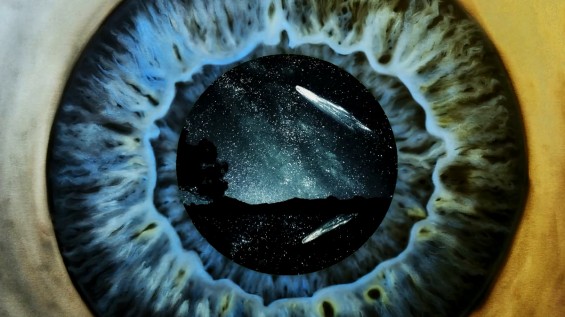
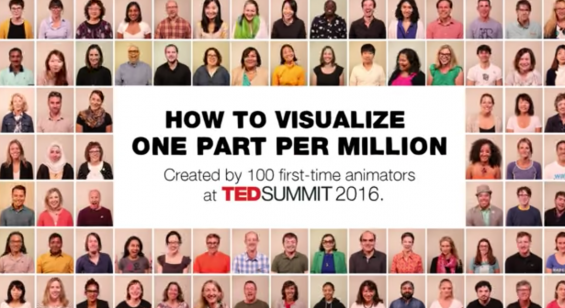
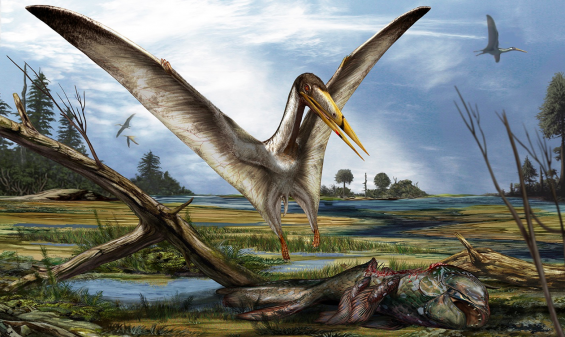
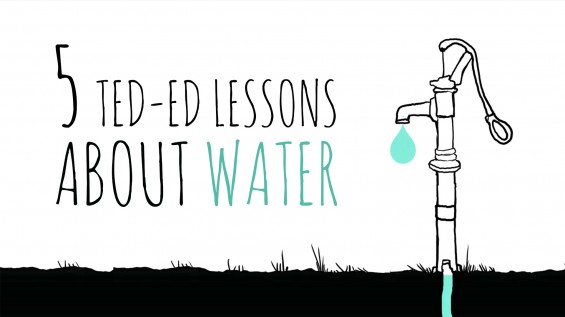
Take a look at “Trapped In Four Square Miles” by Sam Wazan.
Sam is a 15 year combat survivor of the civil war in Beirut in the mid 70′s. Trapped In Four Square Miles is a novel based on his experiences; including facing a compelling decision: join the militia and win his father’s praise, or continue on his journey to seek peace and prosperity by emigrating to the US. This timely story is a testimony to the human spirit. Sam Wazan is a resident of Charlotte NC; he is a motivational speaker, a Senior Management Consultant, dedicated to humanity. He is the founder of Parenting To Humanity.
Joyce’s famous work is called “Dubliners” not as you have on the list. “The Dubliners”. The Dubiners were an almost as famous folk and traditional band who recorded and toured the world before handling up their instruments after many decades.
Regards
Maria
Thanks for the catch!
Thank You!
The Fountainhead by Ayn Rand
No.
@Alan Greenspan : LOL
Perfect.
Wow….
That’s a good list
Thanks for the list! I’m a big fan of A Hope In the Unseen (under Biography). I also highly recommend The Spark, by Kristine Barnett (her son Jacob gave a TED talk) – a memoir about her son’s unusual education. And my all-time favorite book about education: The Teenage Liberation Handbook, by Grace Llewellyn – the subtitle of this being “how to quit school and get a real life and education” – which I think ties in well with Logan Laplante’s TEDx talk (and my own).
This post is very helpful. I’m running out of books to read and trying to search for what is good. Now, I’m excited to go shopping! Thank you!
How about any books about World War One? This summer is the hundred year anniversary of its beginning, so why not read about it?
John Master’s trilogy The Loss of Eden…..hope you enjoy despite the heartbreaking events chronicled. War is so stupid.
The Chronicles of Narnia by C.S. Lewis are always a good read for children and adults.
Anthony Marra’s, “A Constellation of Vital Phenomenon” is the best book I’ve read in a long time. Fiction set in Chechnya and exquisitely written. Powerful.
I loved Constellation of Vital Phenomena, as well.
Me too. I’m surprised it’s not recommended more often.
Wow The All super summer books recommended by your educators are awesome, i like ‘The Amazing Adventures of Kavalier & Clay’ by Michael Chabon
Thanks for sharing.
A great book is Natural Born Learners:Unschooling and Autonomy in Education.
http://radiofreeschool.blogspot.ca/p/natural-born-learners-unschooling-and.html
The Element by Sir Ken Robinson – let’s you start thinking of your purpose and defining true success.
Ishmael by Daniel Quinn. Unusual but brilliant book about who we are now as a civilisation, where we have been and where we are headed if we don’t learn a few necessary things.
43 books, 13 by women. 3:1 male to femaleauthors ratio. Anyone think that this list should be 1:1?
Quite. Reading Siri Hustvedt right now, and have fallen in love with Elizabeth Strout and Louise Erdrich in the last two or so years. All wise and wonderful writers.
Here is a short list of suggested titles for high school students– https://medium.com/synapse/summer-reading-roundup-titles-to-enthrall-to-stoke-your-wonder-5d789db8a7a5
I read William Snyder’s autobiographical book “How Do You Like Them Apples?” recently, covering his nearly 30 years as a teacher in every possible circumstance. A sometimes funny, sometimes serious look into the life of a teacher. Seems like it would be a great read for anyone considering a career in education.
http://www.amazon.com/How-you-Like-them-Apples/dp/1514766442/ref=sr_1_4?s=books&ie=UTF8&qid=1439147167&sr=1-4&keywords=william+snyder
Peace to End All Peace: The Fall of the Ottoman Empire and the Creation of the Modern Middle East. By David Fromkin. No book explains the history of the modern Middle East better. It is insightful, providing a remarkable overview and the reasons for current conflicts.
wonderful, thanks